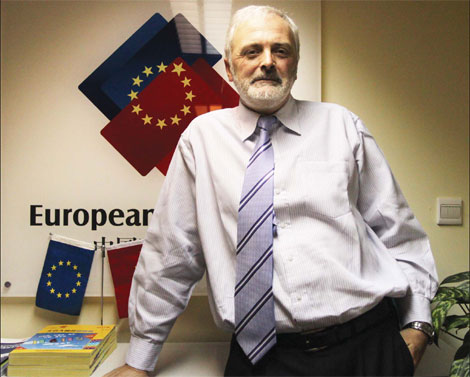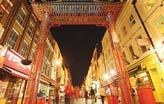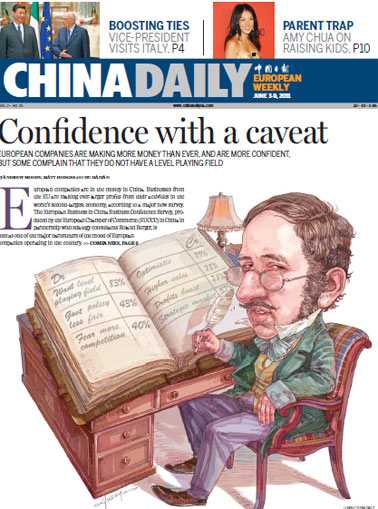Confidence with a caveat
Updated: 2011-06-03 10:47
By Andrew Moody, Matt Hodges and Hu Haiyan (China Daily European Weekly)
|
 Dirk Moens, secretary-general of the European Chamber of Commerce in China, says there are still problems relating to access to the China market. [Liu Zhe / for China Daily]
|
"They have now grown operations in China on a par with other markets in the world but going forward they don't want to build on something that is inherently not profitable and that is why companies are going for more profitability."
Piter de Jong, managing director of Dutch bank ING in Shanghai and chairman of the city's EUCCC chapter, says European companies could receive an even bigger profit boost from the government new Five-Year Plan (2011-1015), which is trying to focus the economy on the domestic market rather than export markets.
"There is a shift away from export-driven growth to the domestic market. This is especially good news for European retailers like Carrefour and Metro and also for makers of luxury goods," he says.
|
 |
Wen Jiyong, a senior spokesperson for Volkswagen, said the survey accurately reflects the company's own profitability in the market.
"Although the growth of the car market might cool down in 2011, we still expect to deliver a good performance," he said.
Volkswagen, which operates in China through joint ventures and also has wholly-owned enterprises, plans to invest 10.6 billion euros expanding its facilities in the country up to 2015.
It aims to produce 3 million vehicles a year and will start to produce electric vehicles by 2014.
"China is the world's largest and most important passenger car market. It has sustainable growth and I think this will continue going forward. We want to create thousands of new jobs at our joint ventures and dealer networks."
European companies, however, feel they are coming up against increased competition in China from domestic companies.
Forty per cent of respondents cited increased competition as affecting their business outlook with this impacting on larger companies the most, 45 percent of which cited it as a problem, compared to small- and medium-sized enterprises, where just 36 percent said it was an issue.
Moens, a former Asia0Pacific president and China chairman of Belgian drinks giant Anheuser-Busch InBev, says one of the reasons for these differences relating to size of company is that smaller companies are not often competing directly against the big State-owned enterprises.
"The bigger companies are often more aware of the pressure. Traditionally, SMEs have a niche, something very specific to offer and are part of the supply chain," he says.
The chamber secretary-general says that in some sectors such as wind power generation competition from domestic companies has decreased margins.
"Foreign investors used to have 70 percent of this market with Chinese companies 30 percent. Now, however, it is the other way round. It used to produce double digit profits for European companies but now we are down to high single digits," he adds.
Regulation remains a key issue for many European companies. Many felt regulations were often implemented in a confused and inconsistent way.
Some 42 percent of companies said there was only discretionary enforcement of laws and regulations, which were often broadly drafted and difficult to understand. Forty percent cited a lack of coordination between different regulators as a problem and 39 percent said there was a lack of harmonization with global standards.
Marcus Wassmuth, head of the representative office of German banking group Landesbank Baden-Wurttemberg and a board member of EUCCC in Shanghai, claims many European companies find difficulties dealing with the masses of regulation.
E-paper

Tapping into the future
Foreign companies are investing in China's water industry as many predict a growing profit margin.
Preview of the coming issue
Headhunters ride on growth
Commercial property rides wave
Specials

Cuisine central
London's Chinatown is helping diners appreciate full palate of Chinese food

Tying the knot
Danish couple's high-end macrame export business takes off in the mountains of Yunnan.

Truly a super woman
Li Yuchun first came to prominence in 2005 as the Super Girl winner, and since then has become an international star.
